Mogadishu – A group of graduate students from Somalia and elsewhere were today encouraged to put their educational achievements at the service of solving their countries’ – and the world’s – problems.
“Congratulations! You've already achieved a lot; we wish you all the very best. Please stay here solving Somalia's problems. But not just Somalia's problems, the problems of the region, the problems of the globe,” the UN Secretary-General’s Special Representative for Somalia, Catriona Laing, said in her remarks to the students.
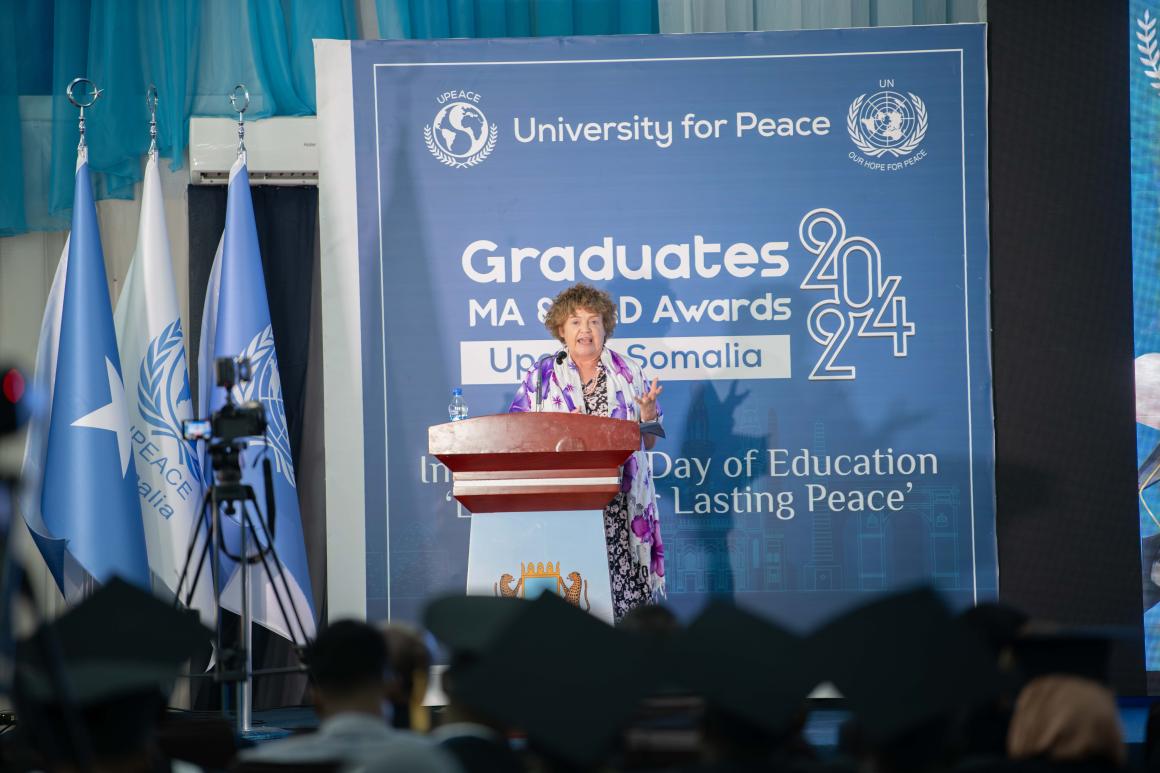
The top UN official was addressing graduate students at the University for Peace’s (UPEACE) third graduation ceremony in the Somali capital of Mogadishu today.
“This is the only tertiary institution mandated exclusively to deliver peace education, and that has particular relevance here in Somalia,” Ms. Laing added. “I think the fact that your own president, the current president, is a graduate of the university says it all – and it was very inspiring to hear him receive his Ph.D. recently.”
In 2022, Somalia’s President Hassan Shekih Mohamud was conferred with a Doctor of Philosophy degree from the same academic institution and focused on peace, governance and development. His dissertation was titled, ‘Examining the Challenges of Clan Politics in State-building: A Case Study of Somalia.’

Today’s 73 graduating students were made up of 14 women and 59 men from Somalia, India, Nigeria and elsewhere. They were receiving postgraduate degrees in a range of areas, including peace, governance, development, environment, international law, human rights and more.
In addition to the students and their families, and the UN Special Representative, attendees included Somalia’s Minister of Commerce and Industry, Jibril Abdirashid Haji Abdi; the Ambassador of the European Union to Somalia, Karin Johansson; the University for Peace’s Rector, Francisco Rojas Aravena; and other representatives from the international community in Somalia.
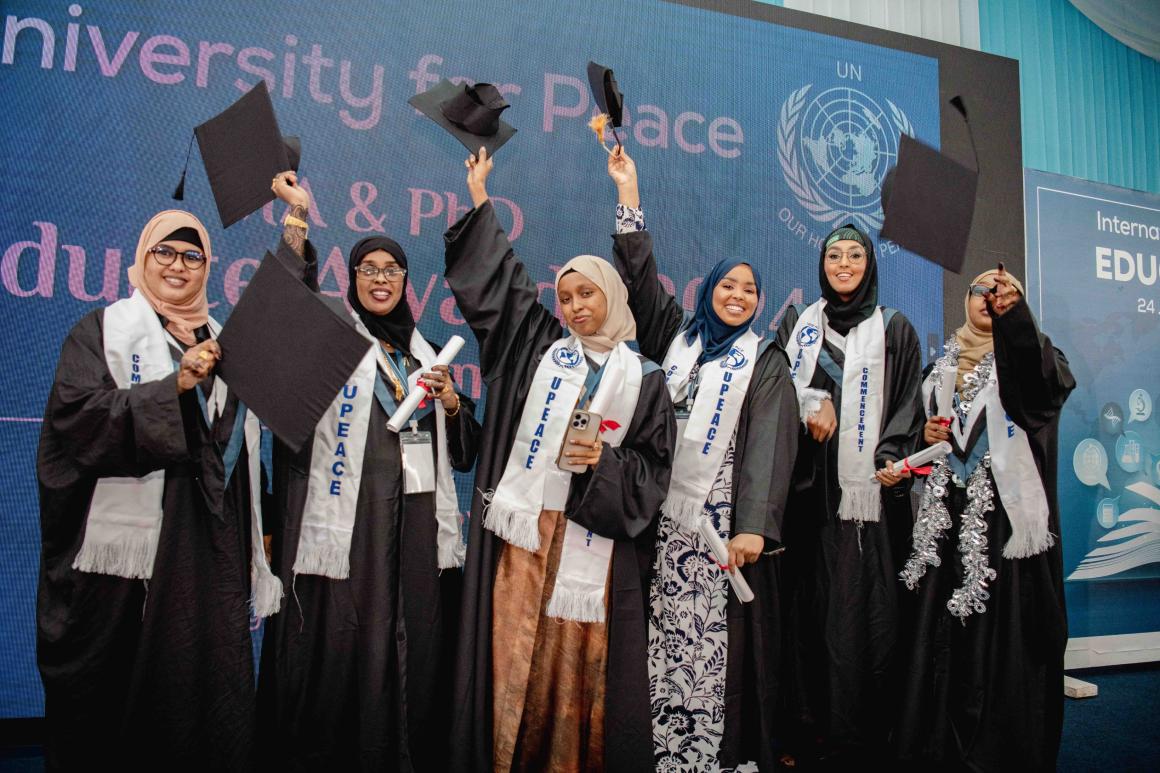
Interdisciplinarity
In her remarks, the UN Special Representative noted the interlinkages between education and development, especially as it applies to Somalia.
“A lot of international partners, including the United Nations, focus very much on basic education, primary and secondary. And, of course, that's important. It creates the foundation,” Ms. Laing said. “No country can really get to where it wants to be in the world economy today without a thriving and very good higher education sector. So, I think it's absolutely right that Somalia should set its aspirations high.”
The top UN official also encouraged the students to collaborate with each other given that most global problems today require solutions of an interdisciplinary nature. She also raised the possibility of collaboration with the United Nations on various areas of research.
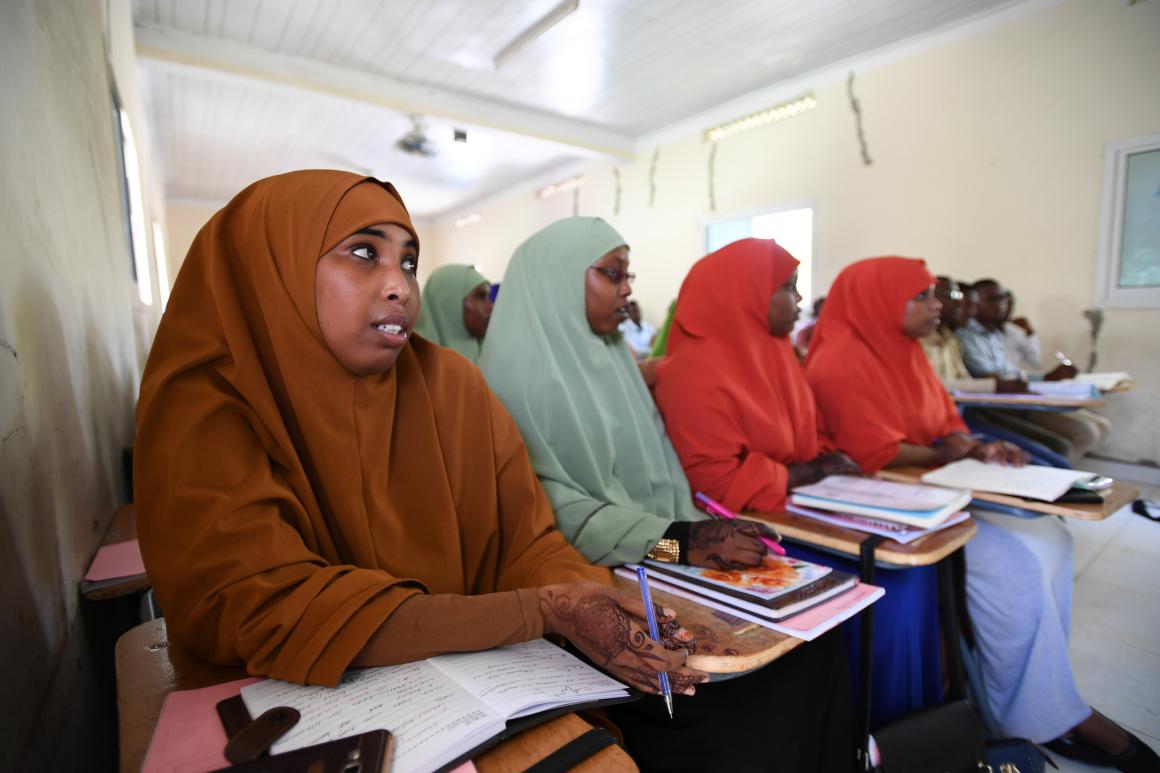
Day of Education
Today’s ceremony coincided with the International Day of Education, which the UN General Assembly established through proclamation in 2018 in celebration of the role of education in peace and development. The occasion was noted by the University for Peace’s rector, as was the day’s theme.
“This year, the theme of ‘learning for lasting peace’ resonates with the core of the mission of UPEACE and underscores the vitality of education as a cornerstone of peace, development, and sustainability – without peace, there is no stability; without peace, there is no development; and without education, there is neither peace, nor stability, nor sustainable development,” Mr. Aravena said.
“The UPEACE’s commitment to Somalia’s peacebuilding process is unwavering through education, research, and collaborative initiative. We are dedicated to contributing to the nation’s journey towards peace, stability, and prosperity,” he added.

UPEACE and Somalia
With its main campus in Costa Rica and established by the UN General Assembly in 1980, the University for Peace’s focus areas include conflict prevention, human security, human rights, environmental security and post-conflict rehabilitation.
“UPEACE’s unique attributes lie in its specialised United Nations mandate for global community with interdisciplinary curriculum, commitment to practical learning, and emphasis on sustainable development,” said the Director of the UPEACE Somalia Programme, Mohamed Yusuf.

The Somalia programme was initiated in late 2018 with the aim of promoting stability in Somalia after years of conflict. In the Horn of Africa country, it offers specialised post-graduate programmes with a focus on peacebuilding, conflict prevention, human security, human rights, environmental security and post-conflict resolution.
“A couple of years ago, many Somalis had to leave the country to do post-graduate studies, whereas today, you find other Africans actually coming to Somalia to graduate – this is a testimony to the improvements that have been made in Somalia over the past four years through UPEACE,” said the Director of the UPEACE Africa Programme, Professor Samuel Ewusi.
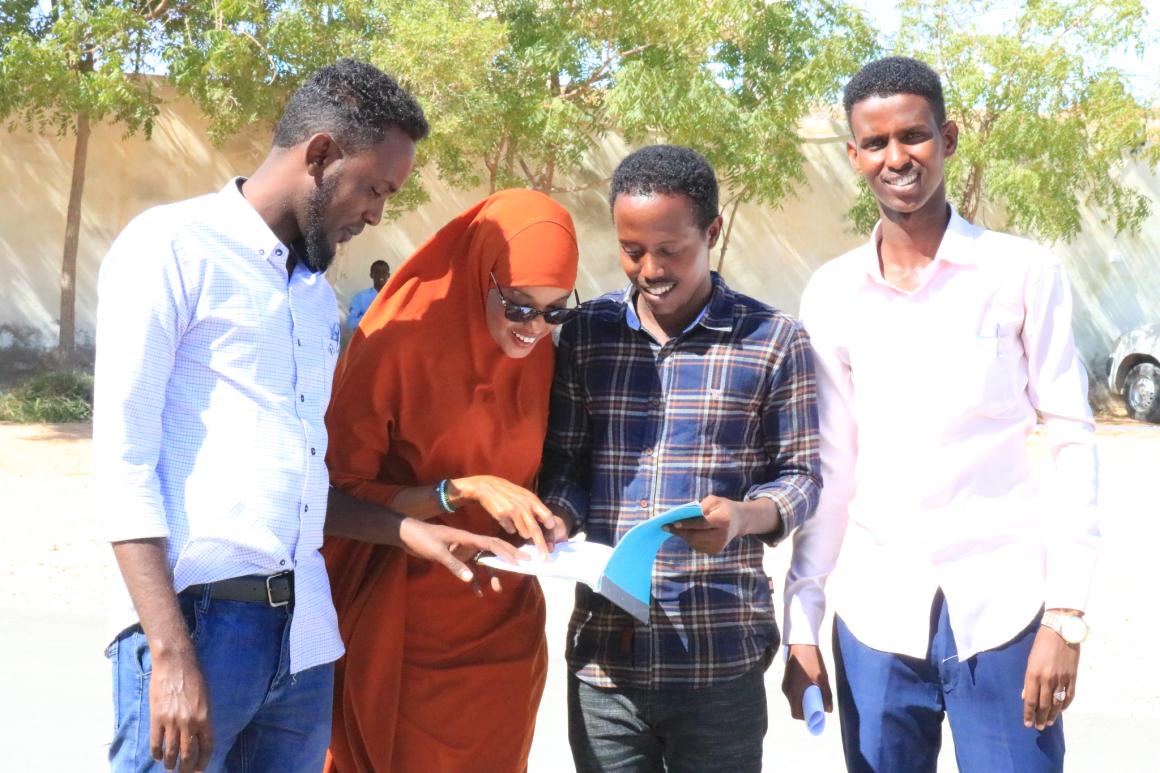
The impact of the institution was not lost on the graduates.
“You stand here today as a generation poised to write a new chapter in Somalia's history – a proud and blessed nation of Somalia with a vision of quality education and lasting peace,” said Jibril Afyare, a student who also work as the director of international cooperation for Somalia’s Ministry of Foreign Affairs and International Cooperation, in his remarks to the gathering.
“As a working mother, having the education I need to develop my knowledge while being at home and caring for my children is such a great opportunity that UPEACE has made a reality for me,” said Leila Abdullahi Daus, one of the Somali master’s graduates in Environment, Development and Peace.
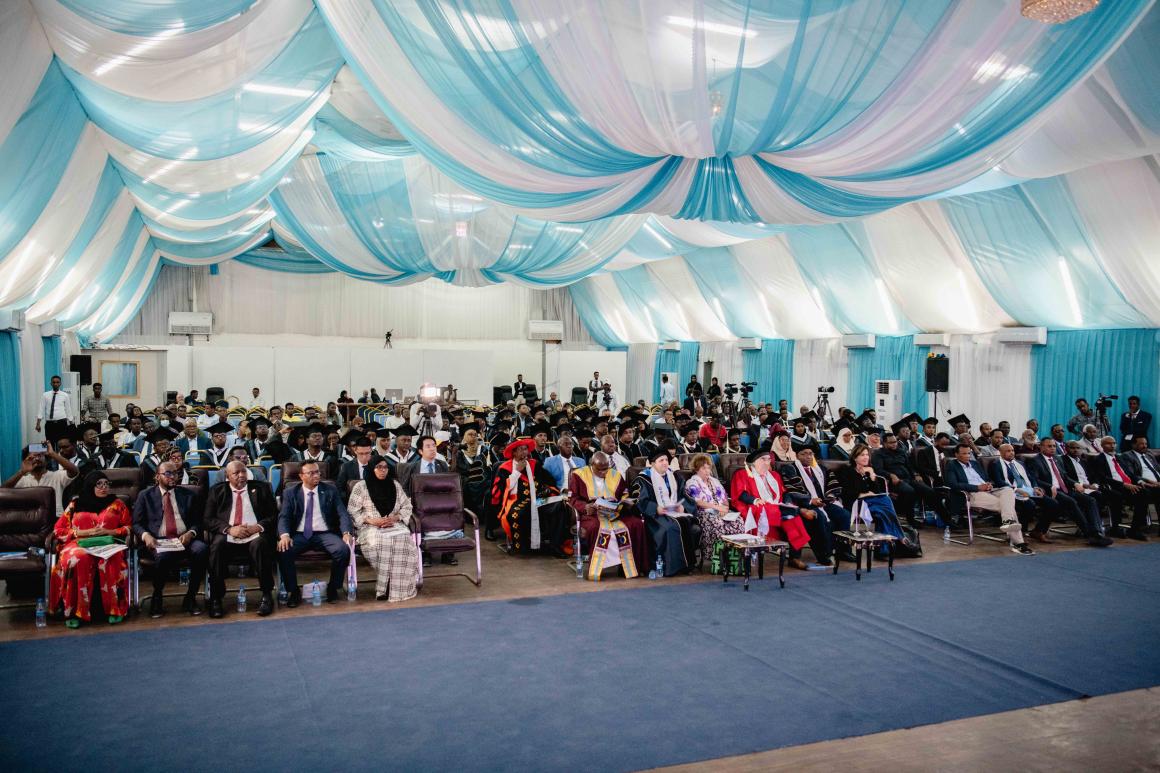
“UPEACE Somalia gives a wonderful opportunity to study from the core to achieve excellent professionalism, learning from Somalia's maritime industry, geopolitics, and international relations,” said Daniel Jesudoss Jeyabalan from India, who was among the ten doctoral graduates in the area of Peace, Governance and Development.
According to UPEACE, in the coming years, a range of new certificate courses and master’s and doctoral programmes will be introduced. These include in areas such as Environmental Security and Governance, Sustainable Natural Resource Management, Climate Change Policy, and Sustainable Food Systems.






